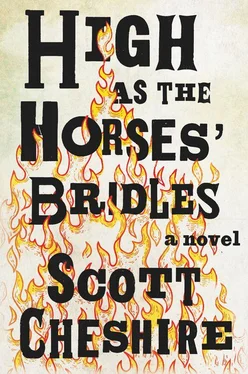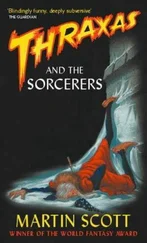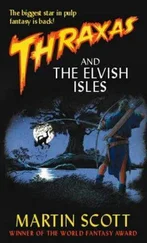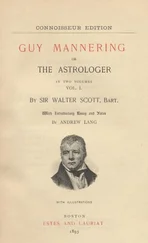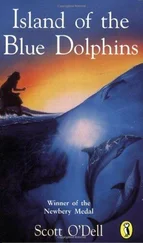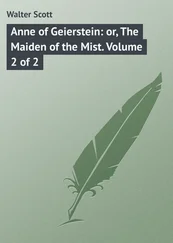He spreads his arms out wide, black Bible in one hand, and the gesture fills him with boldness. “There is a heavenly scent in the air today. Who else among you can smell it? Can you smell the sweet Holy Spirit?” The listeners up front are swaying, their backs against the faithful sharing at the sacramental table. “This bounty is here and all for your taking, but only the pure in heart can sit. Dear God, I bless this table!”
Two tables, crossways, long wooden rough-cut slabs. The faithful take of the bread, and taste of the wine, their faces low and humbled under Heaven. The black folk take of less bread and of water, away at a farther table.
“Look this way!” he cries. “Because the Lord God knows your every secret and even now He knows your name.” He demands: “I said look this way! Because this will be like no sermon before, a true American Gospel!” He can make out their mouths moving, the mumblings of prayer inaudible in the ruckus and racket of chant.
Only one man shows visible interest, standing off at the far side of the stage. A sack over one shoulder, the man is smiling, and Dowse assumes the smile is for his sermon, a great enthusiasm for the Gospel. The crowd around this man gathers, moving about, but those seated pay little attention. “Do you not smell the good clean air?” Dowse cries out. “This land made new in His spirit? His blood? I say, look this way!”
The heads finally look up from the table.
The backs of the others press up against them on the benches, jostling the cups in their hands. They all look his way, and their mouths fall open from shock. They rise — and see Gillon Dowse, in imitation of Christ. His arms extend in a crucifix gesture, Bible limp in his grip. Ankles crossed, he balances on one foot and drops his head to his chest.
He raises his head: “Now, won’t you listen?”
There is a murmur of shocked hush at the tables. The smiling man with the sack, he whistles, he approves. “Take a look at him now,” shouts the man.
Then another voice from the crowd: “Heresy!”
“Profane!”
“He claims to be the Christ!”
Dowse undoes his posture. “I claim nothing of the sort! But a recognition of His mercy, of His sacrifice and glory. I die for Him each day. Every day! And you die this day, too, for our Lord!”
The movement by the stage begins to drag, and the crowd calms even while the outlying listeners become one vast dancing witness. Here in Dowse’s small assembly they start slowing, they set themselves apart. They still themselves and they listen. He hears the crying of a young boy, “Daddy! Daddy!”
He looks out among the crowd, at the man with the sack, and then to the other side of the stage where stands, not very far away, a very large nigger, held back by a crowd of what seem to be concerned white folk.
Whence comes the crying voice?
Dowse shouts, “For what reason do you throw yourselves? You dance in the woods like witches, when the Lord Himself walks these hills and you’re too busy to see Him!” Dowse raises his hands in the air, shaping the world in his hands. “And our Heavenly Father sees us!”
The lull is widening now, as more of them stop and listen to the man onstage.
Dowse turns, and takes the torch from behind him. He holds it aloft out front. He is a fire breather and his mouth speaks Truth: “Do you see this face? See it? This is my face. My mouth. My soul stands before the Lord, and for it He knows my name!” His hair is dark wine pouring from a skull. “And He knows this heart inside my chest no less than He knows yours.”
The crowd nods and murmurs.
The nigger is now holding back a boy, a small white boy, as the crowd wrestles with the nigger’s thick wrists.
Dowse looks away, says, “And He knows my dreams no less than He knows yours.”
A voice shouts back, “It’s true!”
He walks back and forth across the stage. “For whom did the good Christ die on his cross? Tell me, who?”
Another shouts, “For me!”
“Yes! And no less for me, my Christ!” Dowse looks up to the night sky. “He is mine, I am His, and the Lord God knows my name. Now who among you in this land is not the child of God? Who among you?”
They all wave their arms, and nod, Yes, yes, yes. The man with the sack is awkwardly clapping, his hands still gripping the cloth of the sack.
Again, he whistles.
The circle of listeners grows in circumference, slowing outward like grass in a wind.
The boy is now yelling, and Dowse understands this was the crying he’d heard before, and yet he can hardly make out what the boy is saying, “My father, my father”? The boy is pointing at the clapping man, who now sets his sack down. But not on the ground — on the stage, on Dowse’s stage. What presumption! Dowse ventures close, has half a mind to kick it off. But before he can, the man says boldly: “Why don’t you just go ahead and make it rain, preacher? Make it rain!”
Torch in hand, Dowse says to the stranger. “I’m not the Christ, good brother. Never said I was. And I suggest you test not God, lest He answer harshly.”
“No test for God, friend.” The man laughs again. “It’s a test for you. And I ain’t your brother.” He waves his hat at the gathering crowd. “Go on, we’re farmers here, and it’s a dry season so we could use a little miracle making. But we don’t know much theater. So come on, let’s see us some rain!”
A few laughs from the crowd, a few sniggers, and the faces look back and forth, wondering which of these two men will win.
Dowse places the torch on its stand. “Tell me, friend,” he says, pulling his fingers through his hair. “What brings you if not a soul in need of a cure?” He looks at the crowd: Let us hear the man answer me this one! He sees the nigger talking to the white folk around him — where is the boy? — and the nigger is now getting smaller as the crowd walks him away toward the tree line. The boy is now struggling to free himself from the arms of a large white man who looks like a farmer. The boy is clearly yelling, “My father! My father!”
The man says to Dowse, “I’m here because I’m a man of luck, and good luck, I guarantee it!”
Dowse shakes his head and taps his palm against his Bible, chuckling. “Brother, only God guarantees.”
“Then you must not be from around here, because out here we make our own luck. We got no choice!”
“I hear that,” laughs a man in the crowd. “And with any luck we’ll get rain.”
The man now reaches inside the sack onstage. “Well, I ain’t afraid of God, friend. He and I have no quibbling. Just with you and your clan here clamoring like roosters.” He raises his head. “I’m a man of my own standing, and I make my own luck. Who else?” He pulls a large clay jar from his sack, a carved bearded face covering one side, and he says, “This’ll keep you clean of his kind, or any other sour luck comes your way.” He holds the jar above his head. “Who say’ll give me three dollars for a good-luck jar?”
The crowd shouts back, some call him a heretic.
He shouts, “Good luck’s all around you. Can’t you smell it in the trees? And I’ve bottled all you need to take it home!”
A woman in a long coat shouts, “One dollar!” She shoves it at the man, taken in by his swagger, and tries to claim her purchase. The man holds the jar high, saying, “I make my own luck. Here’s proof, a money-back guarantee! Show us proof, Fire-top! We need wheat before there’s bread. Give us a miracle!”
“Here is a money changer dealing in the presence of God! And God alone makes miracles,” says Dowse. “We give God no orders! We’d be in need of a new tongue just to whisper aloud His name!” Dowse shows the face of his Bible, and stamps his foot on the stage. Pacing. He is becoming excited.
Читать дальше
